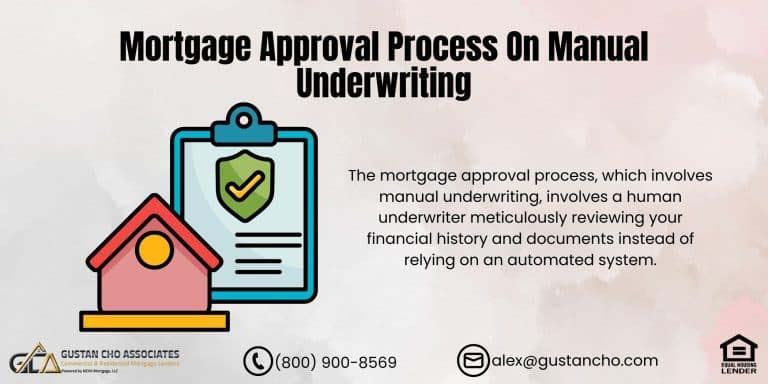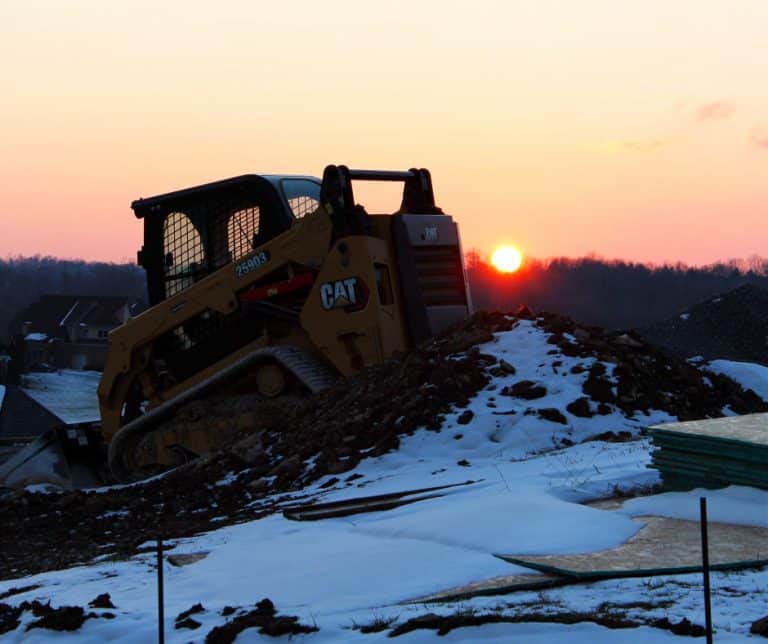Clear to Close in 2 Weeks or Less: Here’s How to Fast-Track Your Mortgage Approval
At Gustan Cho Associates, we know time is precious—especially in home-buying! One of the most common questions is whether a mortgage loan can be approved and closed in two weeks or less. The good news? It’s possible with the right team and steps. We’re here to explain everything you need to know to achieve the dream of getting a clear-to-close (CTC) fast and moving into your new home with less waiting.
What Does “Clear to Close” Mean?
When you hear “clear to close,” it basically means your loan is fully approved, and you’re all set to wrap things up. This is the last step before becoming a homeowner! Getting this “clear to close” notice from your lender means they’ve checked off everything they need to—paperwork is done, and all the details are verified.
All you have to do is sign the final paperwork; the house belongs to you! If you’re hoping to get there, aim for clear to close in 2 weeks or less. It’s exciting to be so close to moving into your new home!
Need to Close Fast? Get “Clear to Close” in 2 Weeks or Less!
Contact us today to learn how you can get clear to close in 2 weeks or less and move into your new home sooner!
Can You Get Clear to Close in 2 Weeks or Less?
Absolutely! It’s possible to get clear to close in 2 weeks or less, but it does take a bit of planning and quick responses from everyone involved. Here’s how you can make it happen:
First off, borrowers need to be responsive. If your lender asks for documents or has questions, you should do your best to provide everything quickly. The faster you can provide what they need, the smoother the process.
Next, having a proactive loan officer and processor is key. These are the people who will guide you through the loan process. They should be on top of things, figuring out what needs to be done next at each step. Good communication is crucial here. Maintaining regular communication with them allows for the early detection of any possible issues before they escalate into actual problems.
Another important point is to go through a thorough pre-approval process before officially applying for the loan. This means getting your financial info sorted out early on so that when you complete the application, everything’s ready to go. It makes a big difference!
Lastly, make sure the home you’re buying has a clear title and that the appraisal happens without delays. A clear title means no hidden problems with ownership, which can greatly speed up the process. A quick appraisal can also help keep everything on track.
So, while getting clear to close in 2 weeks or less might sound challenging, it is possible if everyone works together efficiently and responds quickly!
Real-Life Scenario: Getting a Mortgage Closed in 2 Weeks
Let’s look at a real-life example. It can be stressful when you’re ready to buy a home but suddenly find out your loan was denied somewhere else. You reach out to Gustan Cho Associates and ask, “How fast can you help me get approved and closed?” Our team is here to help you get “clear to close in 2 weeks or less.” Here’s how we make that happen:
- Quick Communication: We’ll immediately talk to you to understand your situation and gather all the necessary documents.
- Fast Approval: Our team will work to get your loan approved as quickly as possible, reviewing everything thoroughly to prevent delays.
- Streamlined Process: We use our connections and expertise to speed up the closing steps, ensuring nothing holds you back.
- Regular Updates: You’ll receive updates at every stage, so you always know where things stand.
Our goal is to relieve stress and help you move into your new home quickly!
Step 1: Completing Your Mortgage Application

- Two years tax returns
- W-2s or 1099s
- 60 days of bank statements
- Most recent pay stubs
Pro Tip: To save time, make sure each document is clear and complete, with no missing pages.
Step 2: Fast Processing and Submitting to Underwriting
On Day 2, the mortgage processor sends your application to the underwriter for review. This is a key step in which they check everything to see if we can approve your loan. While your application is with the underwriter, we’ll quickly order an appraisal and take care of other important things, like getting your insurance details. If everything goes smoothly, you could be clear to close in 2 weeks or less!
Step 3: Getting Conditional Approval (Day 3-5)
Once the underwriter reviews your application, they might give you conditional approval. This means your loan looks good, but there are a few things that still need to be checked, like providing some extra paperwork. We try to keep these requests as simple as possible by getting everything ready from the beginning.
Step 4: Clearing Conditions and Final Review
While waiting for the appraisal to come back, we work on any other conditions required, like title checks and insurance documents. As soon as the appraisal is ready, the mortgage processor submits the appraisal and any final conditions back to underwriting. If all is in order, you’ll be issued a clear to close in 2 weeks or less.
Borrower Tip: Fast responses can prevent delays! Make it a habit to check your email and messages daily during this stage.
Step 5: Clear to Close to Closing (Day 7-14)
Once you’re clear about closing, the mortgage is essentially done. All parties work together to schedule the final signing appointment. The closing day can be as soon as the same or the following day if clear to close is received early.
Ready to Close Your Mortgage in 2 Weeks or Less? We Make It Happen!
Reach out now to get started and close your loan quickly.
Why Some Mortgages Get Delayed – And How to Avoid It
Let’s be real: Not every mortgage can be “clear to close in 2 weeks or less.” Sometimes, things get held up, but here are some easy tips to help you avoid those delays.
- Get Your Papers Ready Early: As soon as you start thinking about buying or refinancing a home, begin gathering your financial documents. This early prep can save you time later.
- Don’t Take on New Debt: Keep your finances steady. Avoid making big changes, like getting a new credit card or changing jobs while in the mortgage process.
- Reply to Your Lender Fast: Time matters! Respond quickly whenever your lender asks for more documents or questions. The sooner you communicate, the smoother the process will be.
Following these tips can help your mortgage get “clear to close in 2 weeks or less.”
How Gustan Cho Associates Makes 2-Week Approvals Possible
At Gustan Cho Associates, our team has handled many expedited approvals, and we know the key to fast processing is preparation and communication. We work closely with borrowers to ensure all documents are ready and complete, and we maintain open communication to resolve any potential issues quickly.
Are You Ready to Close in 2 Weeks or Less?
If you’re looking to buy a home or refinance your mortgage and want a team that can help you get clear to close in 2 weeks or less, reach out to us at Gustan Cho Associates. We have plenty of experience and a streamlined process to ensure your mortgage journey is easy and quick while keeping you happy along the way.
Frequently Asked Questions About Clear to Close in 2 Weeks or Less:
Q: What Does “Clear to Close” Mean in the Mortgage Process?
A: Clear to close means your lender has finished reviewing your mortgage application, and you’re ready to close on your home. It’s the final step before you sign the paperwork and get the keys!
Q: Can I Get Clear to Close in 2 Weeks or Less?
A: Yes, getting clear to close in 2 weeks or less is possible with the right team, quick responses, and good preparation. At Gustan Cho Associates, we’ve helped borrowers reach this goal when everything goes smoothly.
Q: What Steps Can I Take to Get Clear to Close Faster?
A: To get clear to close in 2 weeks or less, be quick with documents, avoid taking on new debt, and keep in close communication with your lender. Having everything prepared and complete can speed things up.
Q: How Soon Can I Close After Getting Clear to Close?
A: Once you’re clear to close, you may be able to close as soon as the next day, depending on everyone’s schedules. In some cases, you might close the same day if everything aligns!
Q: Why do Some Mortgages Take Longer Than Two Weeks to Close?
A: Sometimes, delays happen due to extra paperwork, appraisal issues, or waiting on documents. That’s why we work hard to help you get clear to close in 2 weeks or less by staying on top of everything.
Q: What Documents Should I Prepare to Speed up my Mortgage Approval?
A: Gather your tax returns, W-2s or 1099s, recent pay stubs, and bank statements. Complete documents with no missing pages help you get closer to clear to close in 2 weeks or less.
Q: Does Getting Clear to Close in 2 Weeks or Less Require a Specific Type of Loan?
A: Not necessarily. Many loan types can be fast-tracked. What matters most is having a team experienced in quick closings and making sure your application is straightforward.
Q: Can I Get Clear to Close in 2 Weeks or Less if I’m Self-Employed?
A: Self-employed borrowers may need extra documents, which can take more time. However, with good planning and fast responses, a two-week closing is still possible.
Q: How do Appraisals Impact my Clear-to-Close Timeline?
A: Appraisals are often a key factor in closing time. Ordering a rush appraisal and ensuring no major property issues can help you reach a clear close in 2 weeks or less.
Q: What Happens if I Don’t Get Clear to Close in 2 Weeks?
A: If your clear to close takes longer, don’t worry. Our team will keep you updated, and we’ll work to move things along. Even if it’s not within two weeks, we aim to close as fast as possible.
Related> How fast can you close on a purchase?
This blog about “Clear To Close In 2 Weeks or Less Mortgage Process” was updated on November 4th, 2024.
Want to Close Your Mortgage in 2 Weeks or Less? Let’s Get Started!
Contact us now to find out how we can help you close in 2 weeks or less and move into your new home sooner.









